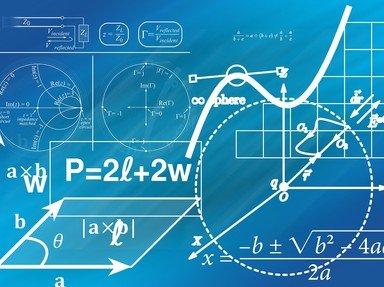Quiz Answer Key and Fun Facts
1. Is zero odd or even?
2. Is zero positive or negative?
3. Who "discovered" zero as an entity with mathematical significance?
4. Why was it so hard to find zero, anyway?
5. When the concept of zero was brought to light, how did this immediately change the world?
6. What are/were the Rules of Brahmagupta?
7. Why doesn't X/0=0?
8. Which of these advantages did number systems that included zero have over those that didn't?
9. It is generally taught in school that any number raised to the zero power is 1. Given that, what is zero raised to the zero power?
10. What are the chances that you will remember the answers to every question in this quiz longer than an hour?
Source: Author
austinnene
This quiz was reviewed by FunTrivia editor
crisw before going online.
Any errors found in FunTrivia content are routinely corrected through our feedback system.

